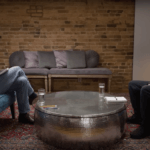
“By becoming so concerned about the plight of children, we have become child-like ourselves.”
The French historian Philippe Ariès was famous for his thesis, according to which, “in medieval society the idea of childhood did not exist.” Ariès relied mostly upon artistic evidence, noticing how—prior to the modern era—children were depicted as miniature adults in paintings. Parents did not mourn intensely the loss of their children, and children were not offered special legal protections.
If Ariès’ thesis is true (this is still, of course, a matter of debate), then we have something for which to be proud. In some remote corners of the developing world, there may still be child labor sweatshops that seem to be taken straight from Oliver Twist; however, for the most part, Western civilization has come to terms with the need to provide children with special treatment, and this has made us far more humane than in previous epochs.
However, in our concern for the plight of children, have we gone too far? I think that we may have. It may now be a cliché that the millennial generation has been overly spoiled, but it is true nevertheless. The children raised by helicopter parents of yesteryear are now young adults, and they cannot handle a scholarly discussions in which certain speakers are invited to campus or where certain subjects are broached. Instead, many hide from the world in “safe spaces,” choosing comfort over thoughtful engagement.
All the while, children have also become a new playing card for demagogue politicians. When someone hysterically screams “Won’t somebody please think of the children?” à la The Simpsons’ Helen Lovejoy, perverse politicians take note. When these politicians run out of rational arguments, they will appeal to what-about-the-children-ism: a cynical move to get voters emotionally charged by appealing to our sensitivity to the well-being of children.
Consider climate change activists. Their arguments in favor of slowing the global economy are not very persuasive, largely because—as Bjørn Lomborgand others have accurately observed—such initiatives sacrifice too much and accomplish too little. As such, when climate activists run out of arguments, they pull the childhood card: Suddenly, these activists platformed Greta Thunberg, hoping that a puerile face would do their work for them. Just as We are the World moved some in the West to donate money to those living in African nations, it was hoped that Thunberg would convince the hardened adults to think about Mother Earth.
And this is not the exclusive purview of the Left. The Right also engages in this sort of manipulation. President Donald Trump has his virtues and his shortcomings. (In my judgment, his presidency has had a mixed record of accomplishments and failures.) However, it became all-too-frequent for his base to embrace him, not on the basis of his actual policies but, rather, based on vague promises to overturn Roe v. Wade.
Now, abortion is a very complex issue, and the pro-life position may, very well, be the correct moral stance (though, I am not personally so persuaded of this). However, many who support President Trump prefer to lean on the what-about-the-children-ism banner. Instead of focusing on the philosophical intricacies of exactly what constitutes personhood, they will relentlessly claim that doctors execute newborns so as to suggest that those who are pro-choice are not that far removed from King Herod massacring the innocents.
Most importantly, what-about-the-children-ism is also at the root of QAnon. Far from being now a fringe movement, QAnon is worryingly becoming mainstream, to the point of getting a believer in the conspiracy theory to be elected to the United States Congress. QAnon makes many absurd allegations, but the most important ones pertain to a global cabal of Satan worshippers being in charge of pedophilic rings. In this conspiracy theory, President Trump is the crusader who fights these monsters. He is the one who will bring relief to those disconsolate mothers who scream, “What about the children?”
Moral panics over pedophilia and the abuse of children are nothing new. Europeans had long felt a chill in their spine when they heard the stories of Gilles de Rais or the Pied Piper of Hamelin. Soon enough, a conspiracist frame was added to this moral panic, and Jews were accused of kidnapping Christian children to eat them as part of their rituals. Jews would then be mixed in with Masons, the Illuminati, and Satan worshippers in these theories. By the 1980’s, a similar moral panic was in full swing, with sensationalist broadcasters such as Geraldo Rivera shamelessly claiming that—in the United States—there were around one million organized Satanists, and these organizations were seeking to kidnap children and abuse them in rituals. The FBI investigated these claims and, needless to say, found no evidence whatsoever to support such allegations.
Although these moral panics have existed for a long time, their extent was limited because, in previous epochs, the cultural approach to childhood was so different. By contrast, in our times, the pendulum of concern for children has swung too far in the other direction. By becoming so concerned about the plight of children, we have become child-like ourselves. In turn, we fall prey to manipulators who easily exploit our hyper-emotional, immature thinking. We are easily cowed into cheap moral arguments and conspiracy theories.
For the good of children themselves and for the good of our political life, we need to loosen the leash under which we keep our children. Greg Lukianoff and Jonathan Haidt hit the nail on the head when they argued in The Coddling of the American Mind: “Children today have far more restricted childhoods, on average, than those enjoyed by their parents, who grew up in far more dangerous times…They have missed out on many of the challenges, negative experiences, and minor risks that help children develop into strong, competent, and independent adults.” Whenever he sees children not allowed to play outside in a fenced-in front yard, an unscrupulous Internet troll (such as “Q” probably is) is rubbing his hands together, planning to post an outrageous conspiracy theory in the dark alleys of the Internet, either as a grand prank—or for political purposes.
Do not fall for it. Let children play outside, and laugh in Helen Lovejoy’s face when she hysterically screams, “Won’t somebody please think of the children?”.
Dr. Gabriel Andrade is a university professor. His twitter is @gandrade80










